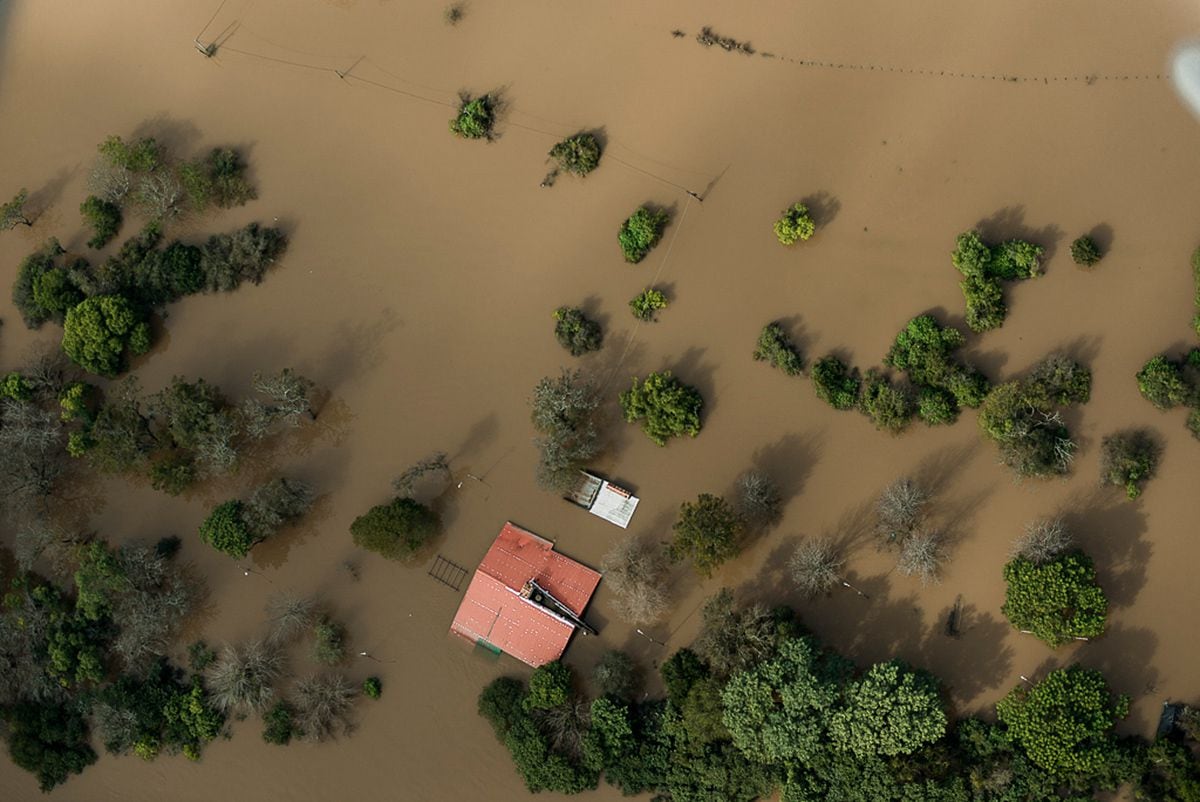NASA warns of possible lack of corn in Latin America 0:52
(CNN) -
The gap between the impacts of the climate crisis and the world's efforts to adapt is widening, according to a new report from the United Nations Environment Program (UNEP).
The annual report on the "adaptation gap", released on Thursday in the framework of the COP26 climate change summit in Glasgow, revealed that the estimated costs of adapting to the worst effects of rising temperatures in countries Low-income (such as droughts, floods, and sea level rise) are five to 10 times the amount of money currently flowing into those regions.
Progress on fossil fuels, forestry bill 'debt traps': the conclusions of day three of COP26
In addition to committing to limit global warming, in the 2015 Paris Agreement the governments of rich countries reaffirmed their commitment to contribute US $ 100 billion a year to the poorest nations so that they can move away from the use of fossil fuels and adapt to disasters fueled by climate change.
This is because developing nations, especially those in the southern hemisphere, are the ones most likely to suffer the worst effects of the climate crisis, despite the small amount they contribute to global greenhouse gas emissions.
Inger Andersen, executive director of UNEP, said that this is why climate finance - that is, financing low-income countries to fight the climate crisis - is vital.
advertising
Biden at COP26: Climate Crisis Threatens "Human Existence" 1:22
"The Paris Agreement says that financing for adaptation and mitigation must be in some balance," Andersen told CNN.
"Those who are going to suffer the most are those in the poorest countries, so it is essential to guarantee a degree of equity and global solidarity in financing adaptation."
The money committed for adaptation will not reach
But the report finds that $ 100 billion a year - a promise rich countries have so far failed to deliver - is not enough to meet demand.
Adaptation costs for low-income countries will reach between US $ 140,000 and US $ 300,000 million annually in 2030 and between US $ 280,000 and US $ 500,000 million annually in 2050, reports UNEP.
In 2019, only $ 79 billion of climate finance went to developing nations, according to the latest analysis.
As the climate crisis intensifies, adaptation measures are becoming more critical.
Scientists have said the world should try to keep global temperature rise below 1.5 degrees Celsius above pre-industrial levels, the threshold to avoid the worst impacts.
However, this Thursday's report suggests that this threshold will be reached earlier than expected, and some of the climate impacts are already irreversible.
Fires, droughts, record heat waves and deadly floods have terrorized parts of the Northern Hemisphere this summer.
PHOTOS |
Beyond Greta Thunberg: this is how they protest in Scotland during COP26
"While strong mitigation is the way to minimize long-term impacts and costs, greater ambition in terms of adaptation is critical, particularly for funding and implementation, to prevent existing gaps from widening," they wrote. the authors of the report.
What is carbon offset, in 4 minutes 4:02
Approximately 79% of countries have adopted at least one climate adaptation plan, policy or strategy, an increase of 7% since 2020. Meanwhile, 9% of countries that do not currently have a plan or policy underway are in the process of developing one.
But the report says that the implementation of these adaptation measures is stalling.
Another UNEP report indicates that in 2030 the world will continue to produce approximately 110% more coal, oil and gas than is necessary to limit warming to 1.5 degrees, which will worsen extreme weather events caused by climate change and make make adaptation even more important.
Alternatives
In a forum on vulnerable countries held this week at COP26, UN Secretary General António Guterres called on rich nations, banks and shareholders to "allocate half of their climate finance to adaptation. "and" offer debt relief "to low-income nations.
"Vulnerable countries must have faster and easier access to finance," Guterres said.
"I urge the developed world to accelerate the delivery of $ 100 billion to rebuild confidence. Vulnerable countries need them for adaptation and mitigation. (They) are not the cause of climate disruption."
G20 countries' CO2 emissions grow 0:49
According to the authors of the report, one way to address this issue is to use the stimulus packages for recovery from COVID-19 as an opportunity to offer ecological and resilient adaptation measures to developing countries. The dual crisis of climate change and the pandemic has tested economic and disaster response capabilities, but the authors say this shows that the world can adapt to the worst impacts of warming temperatures.
The adaptation gap report comes at a critical time as world leaders meet at COP26 to discuss the likelihood of maintaining the 1.5 degree Celsius target, as well as ensuring that wealthy, fuel-generating nations fossils, deliver on their promise to transfer $ 100 billion a year to low-income countries, especially in the south.
Andersen said one thing is clear: "The longer we delay climate action, the more important adaptation will be, especially for the poorest, who are going to be the hardest hit."









